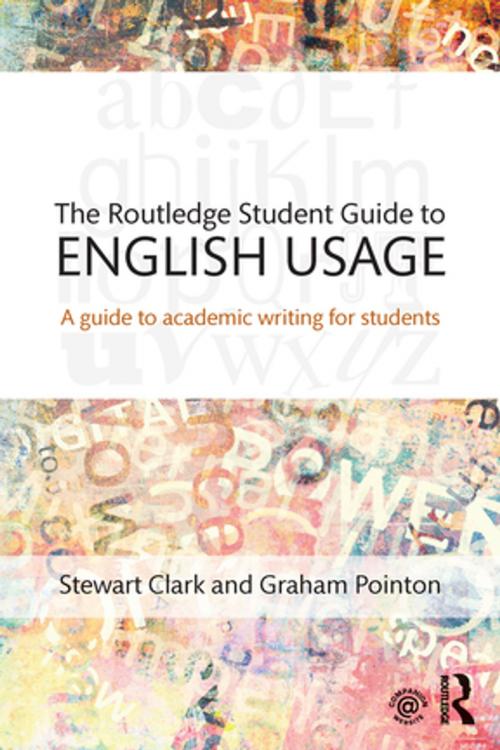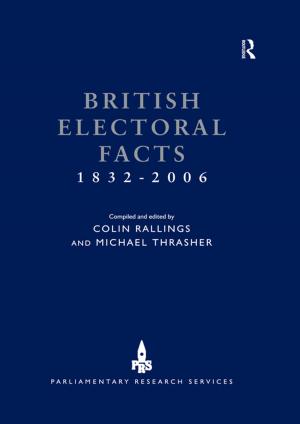The Routledge Student Guide to English Usage
A guide to academic writing for students
Nonfiction, Reference & Language, Language Arts, Linguistics| Author: | Stewart Clark, Graham Pointon | ISBN: | 9781317391166 |
| Publisher: | Taylor and Francis | Publication: | May 20, 2016 |
| Imprint: | Routledge | Language: | English |
| Author: | Stewart Clark, Graham Pointon |
| ISBN: | 9781317391166 |
| Publisher: | Taylor and Francis |
| Publication: | May 20, 2016 |
| Imprint: | Routledge |
| Language: | English |
The Routledge Student Guide to English Usage is an invaluable A–Z guide to the appropriate use of English in academic contexts.
The first part of the book covers approximately 4000 carefully selected words, focusing on groups of confusable words that sound alike, look alike or are frequently mixed up. The authors help to solve academic dilemmas, such as correct usage of the apostrophe and the crucial difference between infer and imply. Examples of good usage are drawn from corpora such as the British National Corpus and the Corpus of Contemporary American English.
The second part covers the key characteristics of formal English in a substantial reference section, comprising:
• stylistic features
• punctuation
• English grammar
• the use of numbers
• email writing.
This is the essential reference text for all students working on improving their academic writing skills. Visit the companion website for a range of supporting exercises: www.routledge.com/cw/clark.
The Routledge Student Guide to English Usage is an invaluable A–Z guide to the appropriate use of English in academic contexts.
The first part of the book covers approximately 4000 carefully selected words, focusing on groups of confusable words that sound alike, look alike or are frequently mixed up. The authors help to solve academic dilemmas, such as correct usage of the apostrophe and the crucial difference between infer and imply. Examples of good usage are drawn from corpora such as the British National Corpus and the Corpus of Contemporary American English.
The second part covers the key characteristics of formal English in a substantial reference section, comprising:
• stylistic features
• punctuation
• English grammar
• the use of numbers
• email writing.
This is the essential reference text for all students working on improving their academic writing skills. Visit the companion website for a range of supporting exercises: www.routledge.com/cw/clark.















